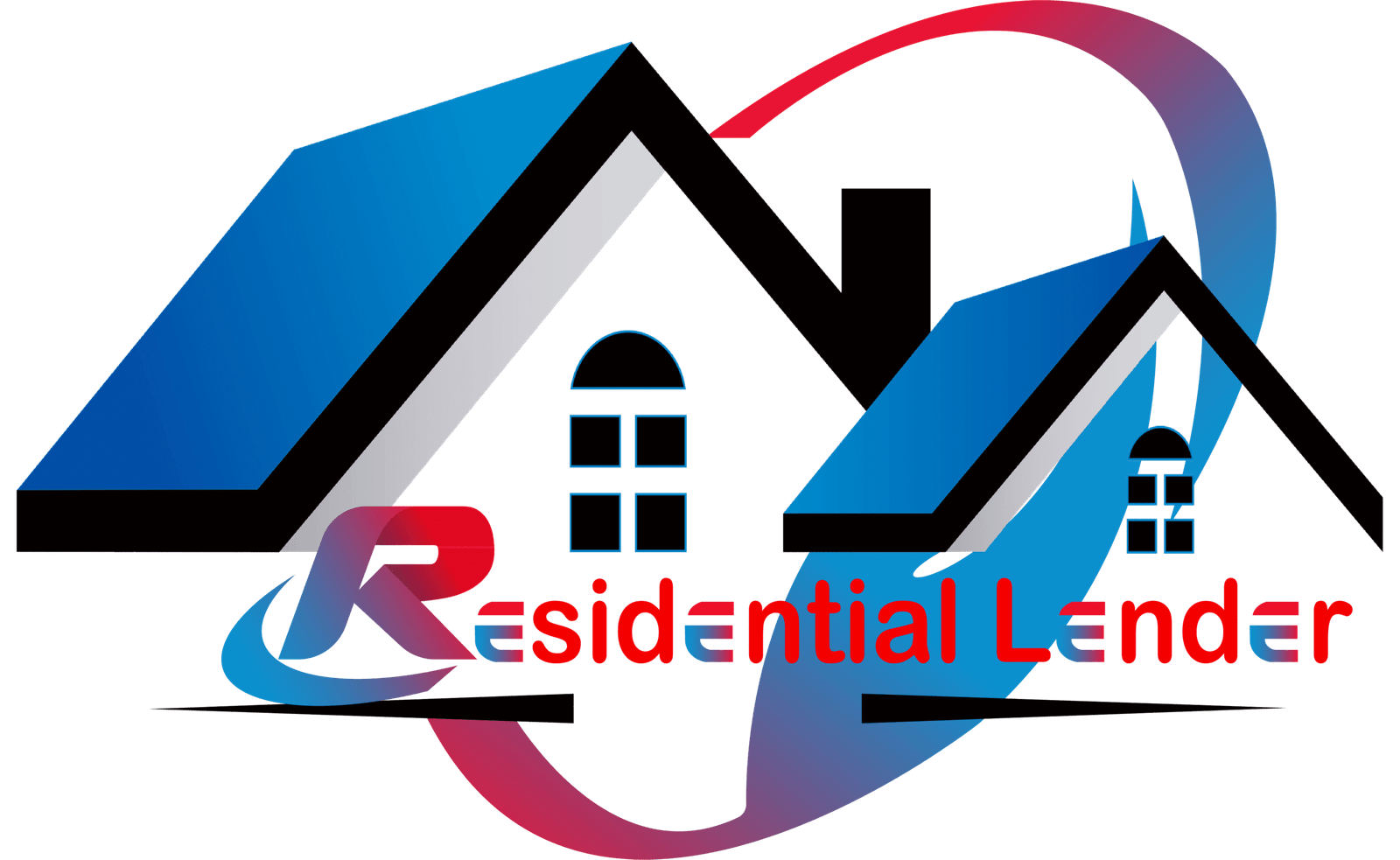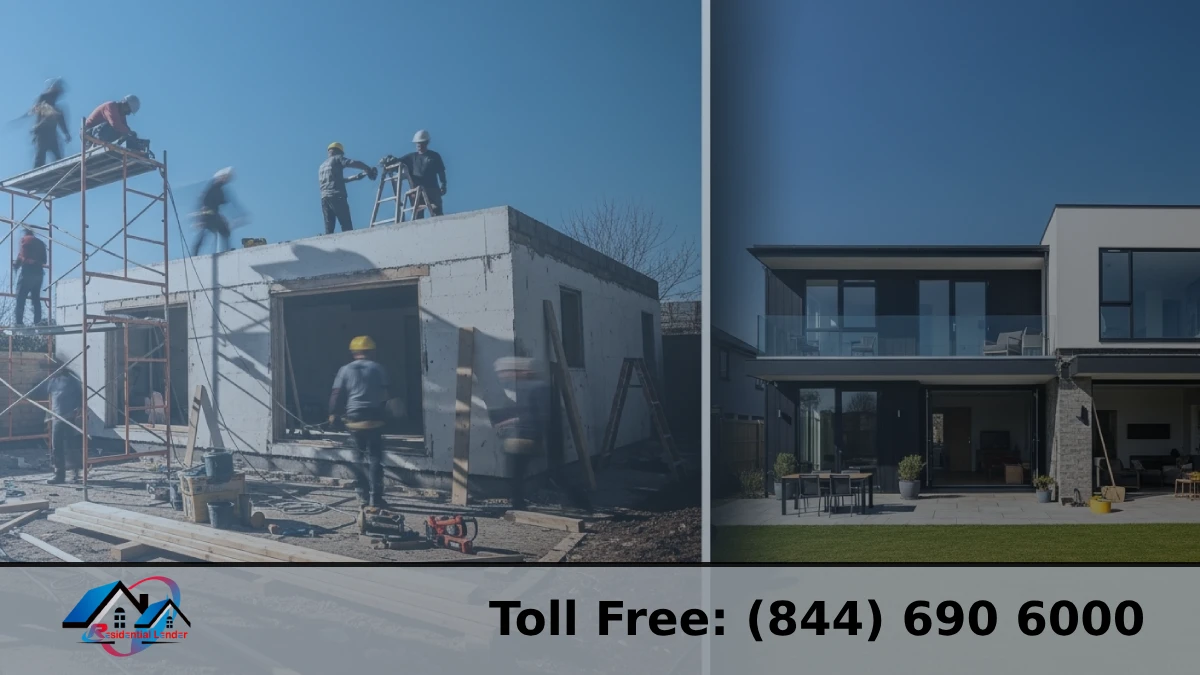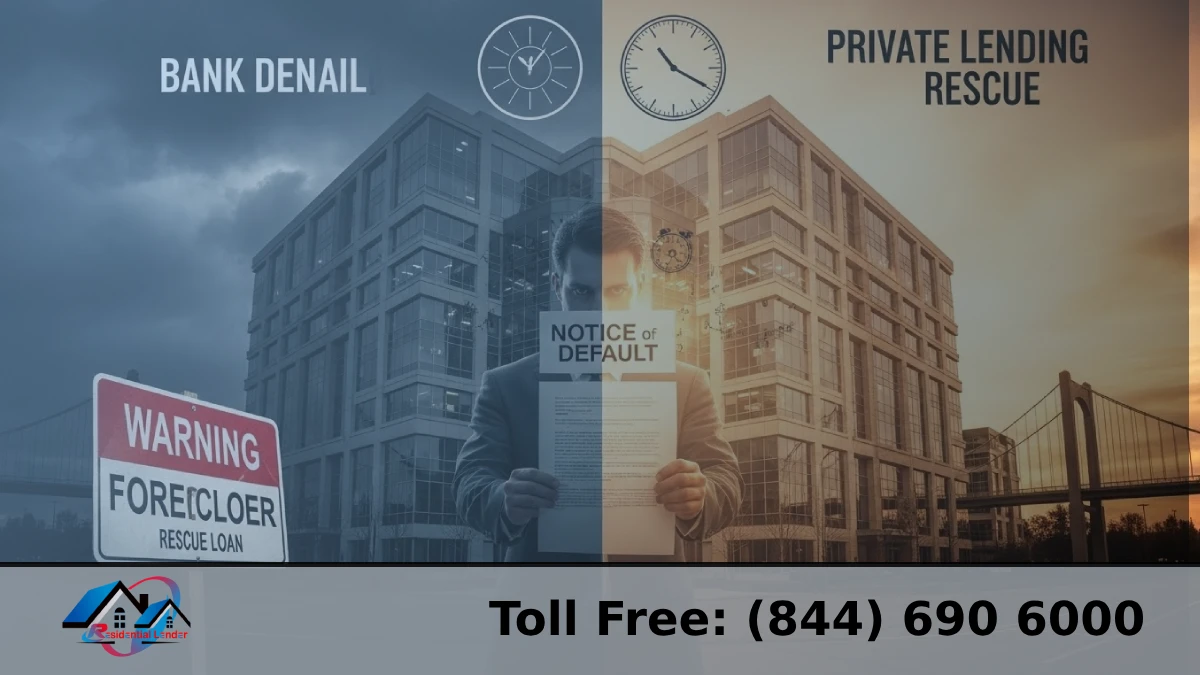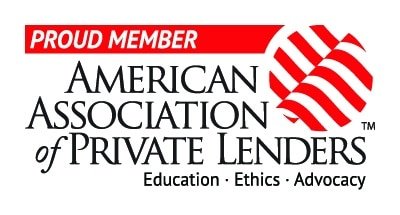Have you ever thought about what your investment properties could be used for? Real estate investors often find themselves in a challenging position: a significant portion of their capital is tied up in the equity of their current portfolios, making it more difficult for them to capitalize on new, profitable opportunities. What you need is a Hard Money Cash Out Refinance to help you out.
It’s a simple term for a financial tool that allows you to quickly and easily convert the wealth you’ve built up in your home into cash. The usual long waits and paperwork associated with standard loans don’t slow down this process. It instead focuses on the value of the property itself, rather than your credit history. It offers you a lot of speed and flexibility.
This guide will teach you everything you need to know about this powerful tool and how it can help you maximize the potential of your portfolio. Now let’s begin.
What is a Hard Money Cash Out Refinance?
A hard money loan is a short-term loan provided by a private individual or company, rather than a bank or other financial institution. A cash-out swap is when you obtain a larger loan to pay off your existing mortgage and receive the difference in cash at the time of closing. By combining these two ideas, you get a Hard Money Cash-Out Refinance. This quick and asset-based refinance option enables investors to quickly access cash from a property they already own.
This isn’t a typical refinance because the loan approval is based on the property’s value and its potential as collateral, rather than your credit score or income. This makes it an excellent choice for buyers who need money quickly and don’t want to fill out a lot of paperwork or wait a long time for a standard loan.
- Speed: The process is significantly faster than traditional bank loans.
- Asset-Based: The loan is secured by the property’s value, not the borrower’s personal financial history.
- Flexible: Terms are often more flexible and can be customized to the investor’s specific needs.
- Short-term: These loans are typically for a shorter duration, often ranging from one to five years.
Why Choose a Hard Money Cash Out Refinance?
When you’re an investor, time is money. Missing a great opportunity because your capital is tied up or because a bank is moving too slowly is a common and frustrating pain point. Hard money cash-out refinances are designed to solve these problems.
Speed and Efficiency
The approval process for traditional bank loans can be notoriously slow, often taking weeks or even months to complete. This delay can cause an investor to lose out on a promising deal or fail to meet a critical deadline. A hard money loan, however, operates on a completely different timeline. Private lenders can often approve and fund a loan within a matter of days, rather than weeks. This speed is a huge advantage for investors who need to act quickly to secure new properties, fund renovations, or cover unexpected expenses.
A Focus on the Property, Not Your Past
Many real estate investors worry that a less-than-perfect credit history or a limited credit score will prevent them from securing the necessary financing. With a hard money cash-out refinance, this is less of a concern. Unlike traditional banks that heavily scrutinize personal finances, private lenders are primarily focused on the value of the property itself and your well-defined exit strategy. This makes it an excellent option for investors who are just starting out, have faced past financial challenges, or have a low credit history.
Flexible Loan Terms and Options
Hard money lenders offer a level of flexibility that traditional institutions can’t match. The loan terms can often be customized to fit your specific needs and investment goals. Whether you need a short-term solution to bridge a gap or a more tailored financing package, a hard money lender can work with you. In addition to cash-out refinances, many private lenders also specialize in a variety of other loan types, such as bridge loans and DSCR loans, offering a comprehensive suite of financial solutions for real estate investors.
Ideal Use Cases for Your Cash Out Funds
Once you’ve successfully completed a cash-out refinance, you’ll have a significant amount of liquid capital at your disposal. The real power of this financial tool lies in how you strategically use those funds to grow your real estate portfolio.
Funding Your Next Fix and Flip Project
One of the most popular uses for cash-out funds is to finance a new fix-and-flip project. You can use the capital you’ve freed up to cover the down payment and renovation costs on a new property. This creates a powerful cycle: you use the equity from your current property to acquire and improve another, which in turn builds more equity that you can tap into later. It’s a sustainable way to keep your business moving and your portfolio growing.
Portfolio Expansion (Fix-and-Hold & Rental Properties)
For real estate investors focused on long-term growth, cash-out funds can be used to acquire new rental properties. Whether you’re looking at single-family homes or larger multifamily properties, this cash can serve as the down payment, helping you expand your portfolio and increase your monthly cash flow. For these types of investments, you may also consider exploring alternatives, such as lite-doc loans or no-doc loans, which are designed for portfolio lenders and can further streamline the financing process.
Handling Unexpected Costs or Improvements
Has a leaky roof or a new AC unit ever caught you off guard? Real estate investing comes with its share of surprises. A hard money cash-out refinance can provide a safety net, giving you the capital to handle unexpected repairs or make valuable improvements to your existing properties without dipping into personal savings. You can even use the funds to pay off high-interest debt, such as a credit card or personal loan, to improve your overall financial health.
Refinancing from a High-Interest Loan
If you initially used a short-term hard money loan to purchase a property quickly, a cash-out refinance can be the perfect exit strategy. You can use the funds to pay off that initial loan and secure a more favorable interest rate or a longer-term solution, all while still pulling out extra cash.
- Fund a new fix-and-flip project: Use the capital for a down payment and renovation costs.
- Acquire new rental properties: Expand your passive income streams and increase cash flow.
- Cover unexpected expenses: Pay for repairs or renovations on existing properties.
- Pay off high-interest debt: Consolidate debt and improve your financial position.
- Refinance a short-term loan: Secure a better interest rate or longer terms.
The Hard Money Cash Out Refinance Process
The process of getting a hard money cash-out refinance is streamlined to be as fast and efficient as possible, allowing you to quickly access the capital you need. Here is a simple, step-by-step guide to how it works.
1. Contact Us for a Free Consultation
The first step is a simple, no-obligation conversation. We’ll discuss your investment goals, the property you want to refinance, and how much cash you need to pull out. This initial consultation helps us understand your unique situation and determine whether a hard money loan is the right fit for you.
2. Property Evaluation
We will evaluate your property to determine its value, with a primary focus on its after-repair value (ARV). This is a critical step because it’s the main factor in our underwriting process. Unlike traditional banks, we’re not bogged down by a long appraisal process; our valuation is fast and asset-based.
3. Loan Terms and Conditions
Once we’ve evaluated the property, we will present you with a clear, straightforward proposal that outlines the loan amount, interest rate, term length, and any associated fees, such as an origination fee. We believe in transparency and ensure you understand all the costs upfront.
4. Underwriting and Approval
This is where our speed truly shines. With over 30 years of experience as an underwriter and a vast network of more than 200 private lenders and investors, we can quickly assess a deal and make a decision. Our underwriting focuses on the property’s potential and your exit strategy, allowing us to approve loans in days, not weeks.
5. Closing and Funding
After approval, we work to close the loan and disburse the funds to you as quickly as possible. The closing process is designed to be hassle-free, with minimal documentation required from you. We can fund your loan in just 7 to 14 days, allowing you to access your cash and proceed with your next project without delay.
The Hard Money vs. Traditional Bank Process
| Feature | Private Lender (Hard Money) | Traditional Lender (Bank) |
| Speed | Days | Weeks to months |
| Focus | Property’s value and equity | Borrower’s credit score and history |
| Flexibility | High | Low |
| Documentation | Lite-doc, minimal | Extensive |
Hard Money Cash Out Refinance: Is It Right for You?
While a hard money cash-out refinance is a powerful tool, it may not be the right fit for every investor. It’s crucial to consider your specific situation and financial goals to determine if this option aligns with your needs.
Who benefits most from a hard money loan?
A hard money cash-out refinance is particularly well-suited for a specific type of real estate investor. You’re a great candidate if you fit one or more of the following descriptions:
- You have a property with significant equity. The entire process is designed to unlock the value you’ve already built into your investment.
- You need to close a deal quickly. If you’ve found a new investment opportunity with a tight deadline, a hard money loan’s speed can be the key to securing the contract.
- You have a less-than-perfect credit history or a low credit score. Suppose traditional banks have turned you down due to past financial issues. In that case, the asset-based nature of hard money loans can be the solution you need.
- You have a clear and realistic exit strategy. Private lenders want to know your plan for repaying the loan. Whether you plan to sell the property or refinance into a long-term loan, a solid strategy is essential.
Addressing Common Concerns
It’s essential to be realistic about the costs and terms associated with a hard money loan.
- Costs: You may notice that the origination fee and interest rates for a hard money loan are higher than those of a traditional bank loan. This is a common concern. However, it’s important to reframe this cost: you are paying for speed, flexibility, and a streamlined process that a conventional lender simply cannot offer. The ability to quickly seize a lucrative opportunity often outweighs the higher cost of capital.
- Loan Terms: Hard money loans are typically short-term, often lasting from one to five years. This is why having a clear exit strategy is so important. You must have a plan to either sell the property or refinance into a lower-interest, long-term loan before the hard money loan matures.
Localized Solutions for Your Area
We invest across the country, but we also have extensive knowledge of local real estate markets, having worked in them for a long time. We recognize that there is no single best way to address real estate issues, and our experience enables us to devise solutions tailored to your specific area. Our group of private investors and lenders is well-versed in the problems and risks that can arise in various locations.
Do you need money for your next fix-and-flip project in Philadelphia, which is a great market? Are you looking for a “residential hard money cash-out refinance in Pennsylvania”? Or maybe you need a “hard money cash-out refinance in Central Texas” to extract money from your Austin home, allowing you to purchase more rental properties and generate additional income. We also do a lot of work in the niche of “Indiana for hard money loan cash-out refinances.” This is where buy-and-hold plans and the “BRRRR” method are prevalent.
We can provide you with more accurate property values and market-specific guidance because we are well-versed in the area.
| Location | Key Investment Strategy | Our Expertise |
| Pennsylvania | Fix-and-flip in urban revitalization zones, student housing rentals. | We understand the ARV of renovated properties in cities like Philadelphia and can fund your projects quickly. |
| Central Texas | Buy-and-hold rentals, short-term rentals, and development. | We can help you leverage your existing equity to capitalize on the high demand for rental properties in Austin and the surrounding areas. |
| Indiana | The “BRRRR” method, long-term rentals, and portfolio expansion. | We specialize in providing the cash-out refinance step of the BRRRR method, helping you free up capital to repeat the process. |
Conclusion
A “Hard Money Cash Out Refinance” isn’t just a loan; it’s a strategy that can help you take charge of your real estate interests. It gives you the freedom and speed to take advantage of new chances by letting you quickly turn the equity in your home into cash. This financing choice puts you back in charge, whether you need to pay for a new fix-and-flip, add to your portfolio, or just cover costs that came up out of the blue.
We can offer quick, dependable, and customized solutions because we have been underwriting loans for over 30 years and have an extensive network of more than 200 private lenders and investors. We don’t just offer hard money loans; we also specialize in SBA loans, FHA business property investment loans, and other types of financing. This way, we can meet your specific needs at every stage of your investing journey.
Are you ready to find out what your rental property can do? Contact us to discuss your options and explore how we can assist you in achieving your goals.
FAQs
What are the interest rates for hard money cash-out refinances?
Interest rates for a hard money cash-out refinance are typically higher than for a traditional loan, usually ranging from 8% to 15% or more. The specific rate you receive depends on several factors, including the loan amount, the property’s value, the loan-to-value (LTV) ratio, and the lender. While the interest rate is higher, it’s often a worthwhile trade-off for the speed, flexibility, and relaxed qualification standards that hard money lenders provide.
What is the maximum loan-to-value (LTV) for a hard money cash-out refinance?
Most hard money cash-out refinances have a maximum loan-to-value (LTV) of 65% to 75% of the property’s after-repair value (ARV). Lenders will only give up to a certain percentage of the home’s value, and you need to have at least 25% to 35% equity in the house to be eligible. The lender will decide the exact LTV based on how risky they think the loan is and how the property is set up.
Can I get a hard money cash-out refinance for my primary residence?
No, most of the time, hard money cash-out refinances are not available for primary residences. Individuals who invest in real estate can obtain these loans, which are typically used for business or commercial purposes. They are intended for use in rental homes, fix-and-flip properties, or business properties purchased as investments. If the house is not your main home, lenders are more likely to give you a loan.
How long does the cash-out refinance process take?
It is well-known that a hard money cash-out refinance can be completed quickly and efficiently. From applying for funding to completing the entire process, it can take as little as 7 to 14 days. This is significantly different from a standard bank refinance, which can take weeks or even months to complete. The quick timeframe is possible because the screening process is based on the value of the property, rather than a thorough examination of the borrower’s past and present financial situation.
What documents do I need to provide for a hard money cash-out refinance?
One of the best things about a hard money loan is that you don’t have to show a lot of paperwork. Typically, you’ll need to provide details about the property, including its location, a brief description, and a clear plan for how to exit the deal. The lender will also inspect the house to determine its value. When you apply for an online loan, you don’t have to show a lot of personal financial papers like tax returns, pay stubs, or detailed bank statements.








